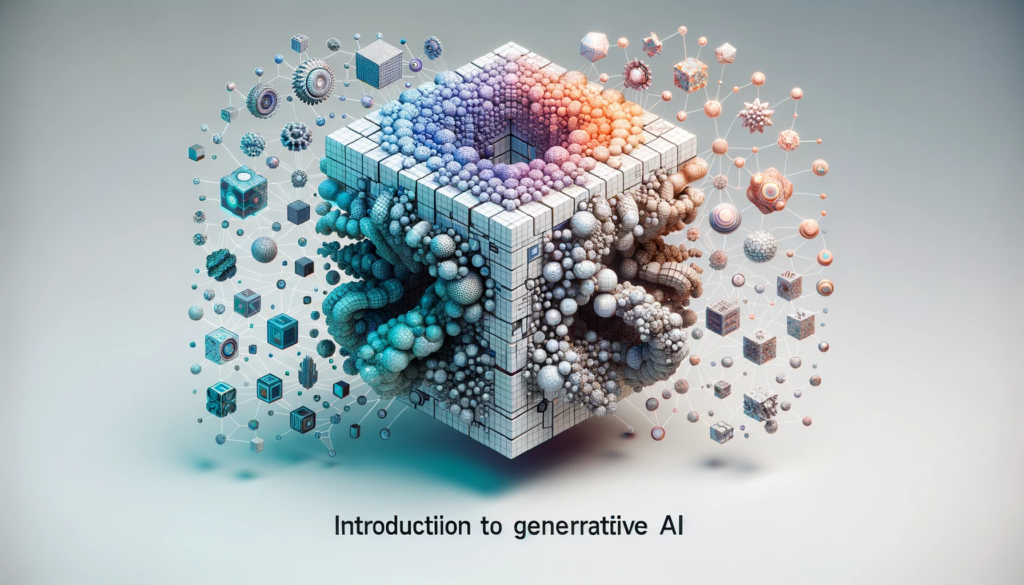The traditional classroom model, a one-size-fits-all approach that has served humanity for centuries, is undergoing a profound transformation. Imagine an educational landscape where learning is as unique as every student’s individual fingerprint, where educators are liberated from the shackles of administrative burdens, and instead, are empowered to inspire, mentor, and truly connect with their students. This isn’t a mere utopian fantasy; it’s the tangible reality being meticulously constructed today, largely thanks to the transformative power of Artificial Intelligence.
AI, once relegated to the realm of speculative science fiction and futuristic thrillers, has rapidly transcended its theoretical boundaries to become a formidable, practical tool. It is actively and dramatically reshaping the educational landscape, fostering an environment that is more personalized, remarkably efficient, and universally accessible for every participant in the learning journey, from students and teachers to administrators and content creators. For the discerning readers of AI 360 Central, let’s meticulously dissect the multifaceted ways in which AI is undeniably leaving an indelible mark on the world of education.
1. The End of “One-Size-Fits-All” Learning: Tailoring Education to the Individual
Perhaps the most groundbreaking and impactful contribution of AI in the sphere of education lies in its unparalleled capacity to deliver genuinely personalized learning experiences. AI intrinsically understands and embraces the fundamental truth that every student is a unique individual, possessing distinct learning styles, varying cognitive speeds, and diverse intellectual strengths and weaknesses.
Adaptive Learning Platforms: Your Personal Academic Compass
Envision a digital textbook that possesses an inherent intelligence, capable of discerning when you encounter a conceptual hurdle or struggle with a particular topic. This is precisely the core functionality of AI-powered adaptive learning platforms. These sophisticated systems meticulously analyze a student’s performance in real-time, employing intricate algorithms to identify areas of difficulty or mastery. When a student grapples with a challenging concept, the platform seamlessly interjects, offering supplementary explanations, alternative examples, or targeted practice exercises. Conversely, for students who have confidently mastered a subject, these platforms intelligently accelerate them through the material, preventing boredom and fostering continuous engagement. It’s akin to having a dedicated, highly responsive personal tutor available for every single subject, meticulously guiding each student along their unique learning trajectory. This dynamic adjustment ensures that no student is left behind, nor is any student held back, allowing for optimal individual progress.
Customized Content for Engaging Minds: Igniting Curiosity Through Relevance
AI algorithms act as highly sophisticated, expert curators of knowledge, going far beyond simple keyword matching. They possess the ability to recommend a rich tapestry of learning resources, including insightful articles, captivating videos, interactive simulations, and even virtual reality experiences, all meticulously tailored to a student’s individual interests, preferred learning modalities, and demonstrated comprehension levels. This bespoke content delivery not only keeps students profoundly engaged and intrinsically motivated but also powerfully illustrates the practical relevance of abstract lessons, seamlessly connecting academic concepts to their personal passions and real-world applications. By making learning directly relatable, AI fosters a deeper understanding and a more enduring retention of information.
Learning at Your Own Pace: The Power of Unhurried Mastery
One of the most significant stressors in traditional educational settings is the relentless pressure to keep pace with an entire class, often at the expense of genuine understanding. AI eradicates this pressure. Students are granted the invaluable autonomy to dedicate the precise amount of time they require to thoroughly comprehend a topic before advancing. This deliberate, unhurried approach to learning enables students to construct an exceptionally robust and deeply ingrained foundation of knowledge, unburdened by the fear of falling behind or the anxiety of public comparison. This personalized pacing promotes true mastery and confidence.
2. Smarter Tools for a Smarter Classroom: Elevating the Learning Experience
Beyond personalization, AI is fundamentally upgrading the very tools and resources available to both students and educators, thereby transforming the learning process into a more dynamic, interactive, and inherently supportive experience.
AI Tutors on Demand: Your 24/7 Academic Support System
Imagine confronting a perplexing homework problem late at night, with no immediate access to a teacher or peer. AI-powered tutors and intelligent chatbots seamlessly bridge this gap. Accessible 24 hours a day, 7 days a week, these virtual assistants are perpetually available to answer intricate questions, meticulously break down complex problems into manageable steps, and provide instantaneous, constructive feedback. Whether it’s guiding a student through a difficult mathematical equation or explaining a nuanced historical concept, these AI tutors offer immediate, reliable assistance, effectively extending the learning environment far beyond the traditional school hours.
Intelligent Content Creation: Empowering Educators with Efficiency
For the hardworking educators, AI emerges as an invaluable, game-changing assistant, alleviating significant burdens and augmenting their creative capacities. AI can rapidly generate diverse quiz questions, design visually stunning and engaging presentations, and even construct sophisticated virtual laboratories for complex scientific experiments. This automation of often tedious and time-consuming tasks liberates teachers, allowing them to dedicate their invaluable time and creative energy to high-impact instructional strategies, individualized student mentorship, and the development of truly innovative pedagogical approaches.
Mastering a New Language: Accelerating Fluency with AI Immersion
AI applications are revolutionizing the demanding yet rewarding journey of language acquisition. These platforms provide highly immersive and interactive experiences, offering real-time, nuanced feedback on every aspect of language, from the subtle intricacies of pronunciation to the complexities of grammatical structures and the nuances of idiomatic expressions. By providing immediate corrective feedback and extensive practice opportunities, AI helps learners acquire fluency and confidence at an unprecedented pace, transforming what can often be a daunting process into an engaging and effective one.
3. Giving Teachers Their Time Back: Automating the Administrative Burden
One of the most persistent and debilitating challenges faced by dedicated educators worldwide is the overwhelming mountain of administrative work that often eclipses their primary role. AI is strategically positioned to clear this path, automating a myriad of tedious and repetitive tasks, thereby allowing teachers to singularly focus on their true passion and expertise: teaching, inspiring, and fostering intellectual growth.
Automated Grading: Precision and Speed for Objective Assessments
AI can instantly and accurately grade objective assessments, such as multiple-choice tests, true/false questions, and fill-in-the-blank exercises. For more subjective assignments, such as essays and research papers, AI can serve as a powerful initial screening tool. It can meticulously check for grammatical errors, identify potential instances of plagiarism, and provide preliminary feedback on structural coherence, argument clarity, and logical flow. This intelligent pre-analysis gives teachers a significant head start, allowing them to concentrate their valuable time on providing in-depth qualitative feedback, nurturing critical thinking, and guiding students in developing their unique voice and analytical skills.
Streamlined Classroom Management: Ensuring Operational Efficiency
From meticulously tracking student attendance and maintaining comprehensive student records to efficiently generating and dispatching personalized progress reports to parents, AI tools are adept at handling a vast array of logistical and administrative responsibilities. This automation ensures that the classroom environment operates with enhanced smoothness and efficiency, freeing teachers from mundane clerical duties and allowing them to dedicate more energy to instructional planning, student interaction, and fostering a vibrant learning atmosphere.
4. Breaking Down Barriers to Learning: Enhancing Accessibility for All
Perhaps one of the most heartwarming and impactful applications of AI in education is its immense promise in making learning significantly more accessible and equitable for students with diverse needs and disabilities.
A Voice for Everyone: Empowering Participation Through Technology
Cutting-edge AI-powered tools, such as real-time text-to-speech and speech-to-text conversion, are profoundly empowering. They enable students with visual impairments to fully engage with written course materials and allow students with hearing impairments to transcribe spoken lectures into accessible text. This technological bridge ensures that all students can actively participate in lessons, seamlessly access and interact with course content, and feel truly included in the academic discourse.
Personalized Assistance: Ensuring Inclusive Communication
AI can provide invaluable real-time captioning during live lectures, ensuring that students with hearing impairments can follow along without missing critical information. Furthermore, advanced AI applications are even capable of providing sign language interpretation for spoken content, creating a truly inclusive learning environment where no student is excluded from the conversation or the flow of knowledge. This personalized assistance customizes the learning experience to meet individual accessibility requirements, fostering a sense of belonging and equitable opportunity.
Navigating the Road Ahead: Challenges & Ethics in AI Integration
It is imperative to acknowledge that the comprehensive integration of AI into the intricate fabric of education is not without its inherent challenges and ethical considerations. To ensure its responsible and beneficial deployment, it is absolutely crucial to proceed with a thoughtful, meticulously planned, and fundamentally human-centered approach. Several key issues demand our vigilant attention and proactive solutions:
- Data Privacy and Security: The collection and analysis of vast amounts of student data by AI systems raise significant concerns regarding privacy. We must establish robust frameworks and implement stringent security protocols to ensure that all student information is meticulously protected, anonymized where appropriate, and utilized solely for educational enhancement, adhering to the highest ethical standards.
- Algorithmic Bias: AI algorithms are only as unbiased as the data they are trained on. There is a critical need for continuous vigilance against algorithmic bias, which could inadvertently lead to unfair or discriminatory outcomes for certain student demographics. Ensuring that AI tools are fair, equitable, and universally beneficial for all students, regardless of their background, is paramount. This requires diverse training data sets and rigorous testing.
- The Irreplaceable Role of the Human Teacher: Most importantly, we must never lose sight of the fundamental truth that AI is designed to be a powerful tool to augment, not to replace, the invaluable contributions of our incredible, dedicated teachers. The profound mentorship, the deep empathy, the nuanced understanding of individual student needs, and the inspiring human connection that a skilled human teacher provides are, by their very nature, irreplaceable. AI can enhance efficiency and personalize content, but it cannot replicate the complex emotional intelligence and pedagogical artistry of a human educator.
The Future is a Collaborative Classroom: Human Ingenuity Meets Machine Intelligence
The ongoing integration of Artificial Intelligence into the realm of education stands as one of the most profoundly exciting and transformative developments of our contemporary era. It represents a paradigm shift, moving towards a dynamic and symbiotic partnership between the boundless ingenuity of human educators and the formidable analytical capabilities of machine intelligence. The ultimate objective is to meticulously foster and cultivate the most optimal and enriching learning environment conceivable.
The future of education is emphatically not about making a binary choice between the indispensable role of a dedicated teacher and the innovative potential of advanced technology. Rather, it is about strategically empowering the teacher with a suite of sophisticated technological tools. It’s about leveraging AI to automate the mundane, personalize the learning journey, and provide unprecedented insights, thereby allowing teachers to reclaim their time, rekindle their passion, and dedicate their energy to the truly human aspects of education: inspiring curiosity, fostering critical thinking, nurturing creativity, and building meaningful relationships with their students.
What are your considered thoughts on the evolving role of AI in shaping the future of education? We invite you to share your unique perspective and insights in the comments section below!


premium AI products online worldwide with global delivery